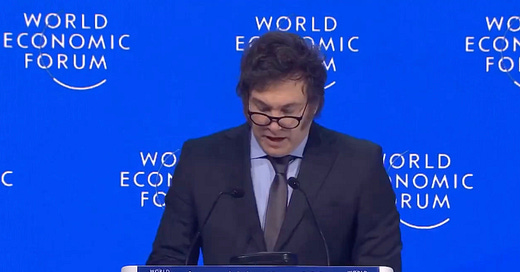The Davos Talk Everyone Is Talking About: Collectivism v. Capitalism
Javier Milei was both profound and profoundly wrong
Keep reading with a 7-day free trial
Subscribe to PolisPandit to keep reading this post and get 7 days of free access to the full post archives.




